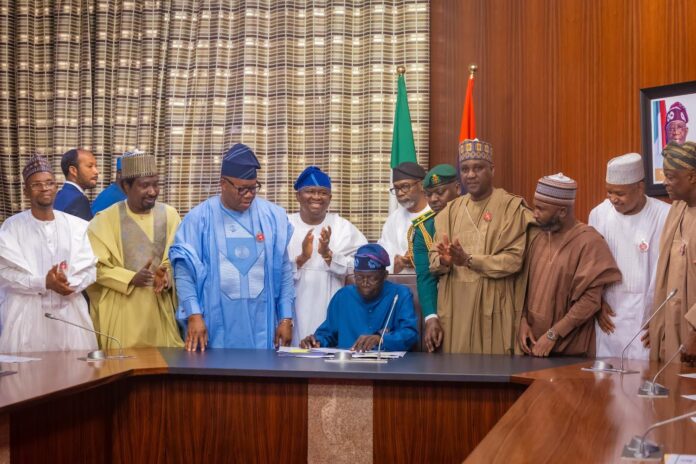Abuja, July 29, 2024 – President Bola Ahmed Tinubu has officially signed the Minimum Wage Bill into law, raising the national minimum wage from ₦30,000 to ₦70,000. The signing ceremony, held at the State House in Abuja, marks the culmination of months of negotiations between the government, labour unions, and the private sector.
The event was witnessed by a delegation from the National Assembly, led by the President of the Senate, Godswill Akpabio, alongside several members of the House of Representatives. The bill’s passage comes just days after it was approved by the National Assembly, highlighting the swift legislative response to the new wage framework.
Basheer Lado, the Special Adviser to the President on Senate Matters, described the move as a fulfillment of a key campaign promise. “The signing of the minimum wage bill into law by His Excellency, President Bola Ahmed Tinubu is both a promise kept and a demonstration of his people-centric governance model,” Lado stated. “Tinubu promised to pay a living wage to Nigerian workers during his electioneering campaigns and he has kept that promise.”
The new wage policy follows intense discussions with labour unions, which had initially proposed a minimum wage of ₦494,000. The government’s initial offer was ₦60,000, but after several rounds of negotiations, a compromise was reached at ₦70,000. This agreement comes amid rising costs of living, exacerbated by recent economic policies including the removal of the fuel subsidy and the floating of the naira.
The Minister of Information, Mohammed Idris, announced the consensus reached on July 18, saying, “We are happy to announce today that both the organised labour and the Federal Government have agreed on an increase on the N62,000 minimum wage. The new national minimum that Mr President is expected to submit to the National Assembly is ₦70,000.”
Under the new law, the minimum wage will be reviewed every three years, ensuring that it keeps pace with economic realities. This landmark legislation is seen as a major step towards improving the living conditions of Nigerian workers and addressing economic inequalities.




